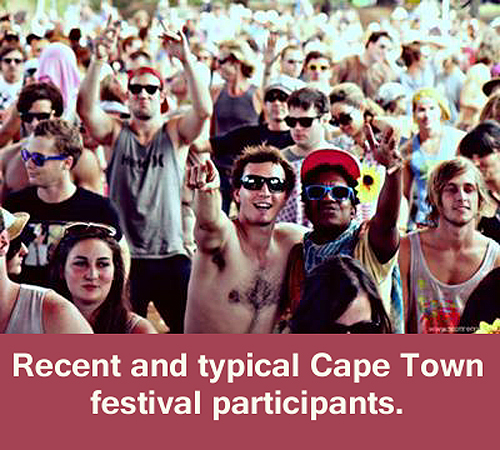 What I will remember mostly of our just ended week in The Cape is how white South Africa looks.
What I will remember mostly of our just ended week in The Cape is how white South Africa looks.
I hasten to make no judgment about this right away. But the facts speak for themselves. For a country less than 5% technically Caucasian, easily 80% of every one of our days was populated by whites only.
Now obviously we were tourists and visiting tourist destinations, and in today’s world where we as Americans routinely visit, the overwhelming percentage of tourists are white.
The Waterfront area of Cape Town had a greater diversity as it should since this was a major national holiday weekend. But I dare say it never was a majority of other than white faces.
Television presenters were mostly nonwhite, but television guests were mostly white. The South African business meetings that intersected our own holiday making at the wonderful Lanzerac Hotel in Stellenbosch were nearly all white.
The beautiful beach suburbs and Table Mountain suburbs of Cape Town with their elegant mansions and beautifully manicured lawns are almost exclusively white.
And Stellenbosch itself, until you actually drilled into the college campus, was a town filled with white tourists and residents and even a majority of wait staff and store owners who were white.
It’s less than two weeks before the next important national election, and it’s been twenty years since apartheid ended. On our trips to and from Stellenbosch, the airport and The Cape Peninsula we passed multiple times the “Cape Flats” – an endless, it seemed, sprawl of mostly tin housing.
They were not white.
There were hopeful signs at various points of public housing moving forward, but it was mostly an unbelievably large, sprawling slum.
I am constantly amazed at the patience of the African, of his ability to suffer, and I try to be inspired by the overarching hope that must sustain that patience, because contrary to many detracting commentators, it is not some innate futility of personality. It’s patience.
And it’s forgiveness, as embodied by the great clergyman, Desmond Tutu.
But such humility and spiritual generosity does not alone a progressive society make. This election cycle is different from the previous in the rancor of its competitors and in the threats of those slipping in the polls (like the ANC) to redistribute “white land.”
Ultimately that will happen if social progress isn’t sped up. We listened throughout the week to our older white guides lamenting the departure of their white children who were unable to obtain decent jobs in a South African society currently heavily weighted with affirmative action.
Yet while those children may be gone and the opportunities for nonwhites improved, the visible whiteness of The Cape remains striking and surprising.
History is neither a liar or a fool. The stories of the past are clear, and while the patience of its peoples differs greatly, it will not sit back and wait for promised equality forever.
Whether it means yet higher taxes to speed up national housing, or some painful land redistribution or even more radical wealth distribution through controversial methods like nationalization, South Africa in my view must makes some radical turns to defuse its tinder box.
The explosion may not be imminent, but it is inevitable if its leaders are unable to speed up the process of promised equalization.
Jim and his group spend the next week in Botswana which unlike so much of Africa has very limited internet connectivity. AfricaAnswerman’s blog posts will likely be delayed.
An interesting article in today’s online Al Jazeera about slum camps around Praetoria. Camps for poor white Africaners. Check it out.